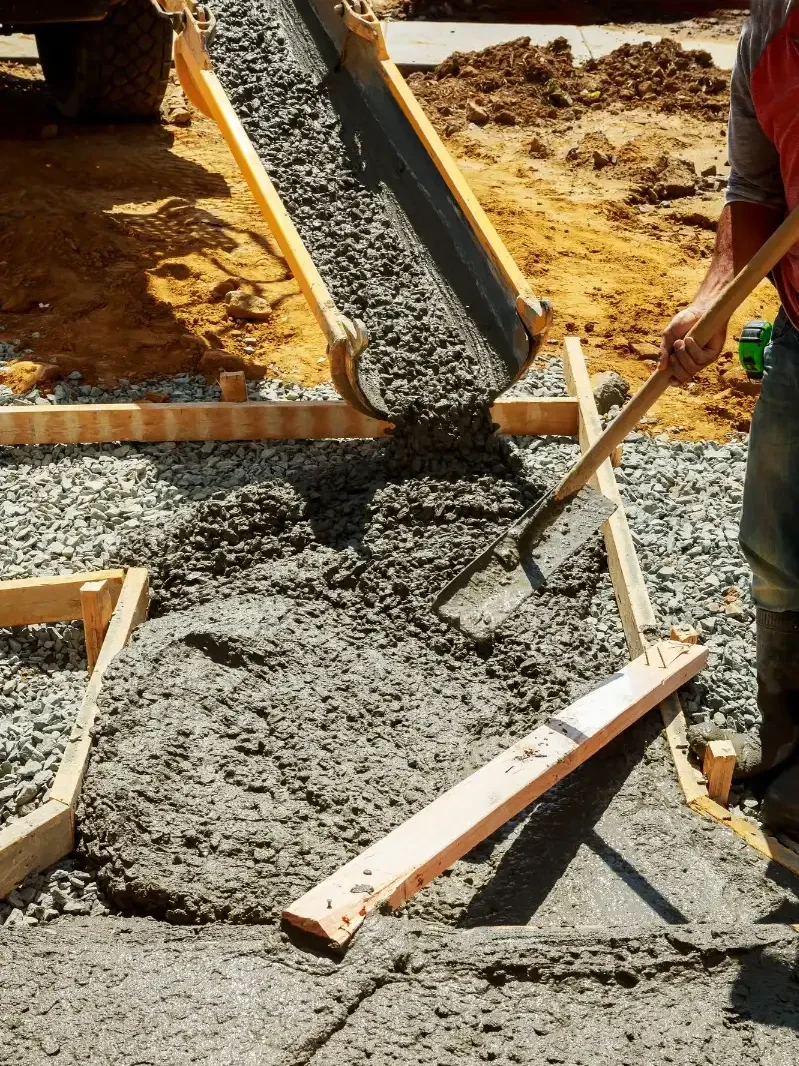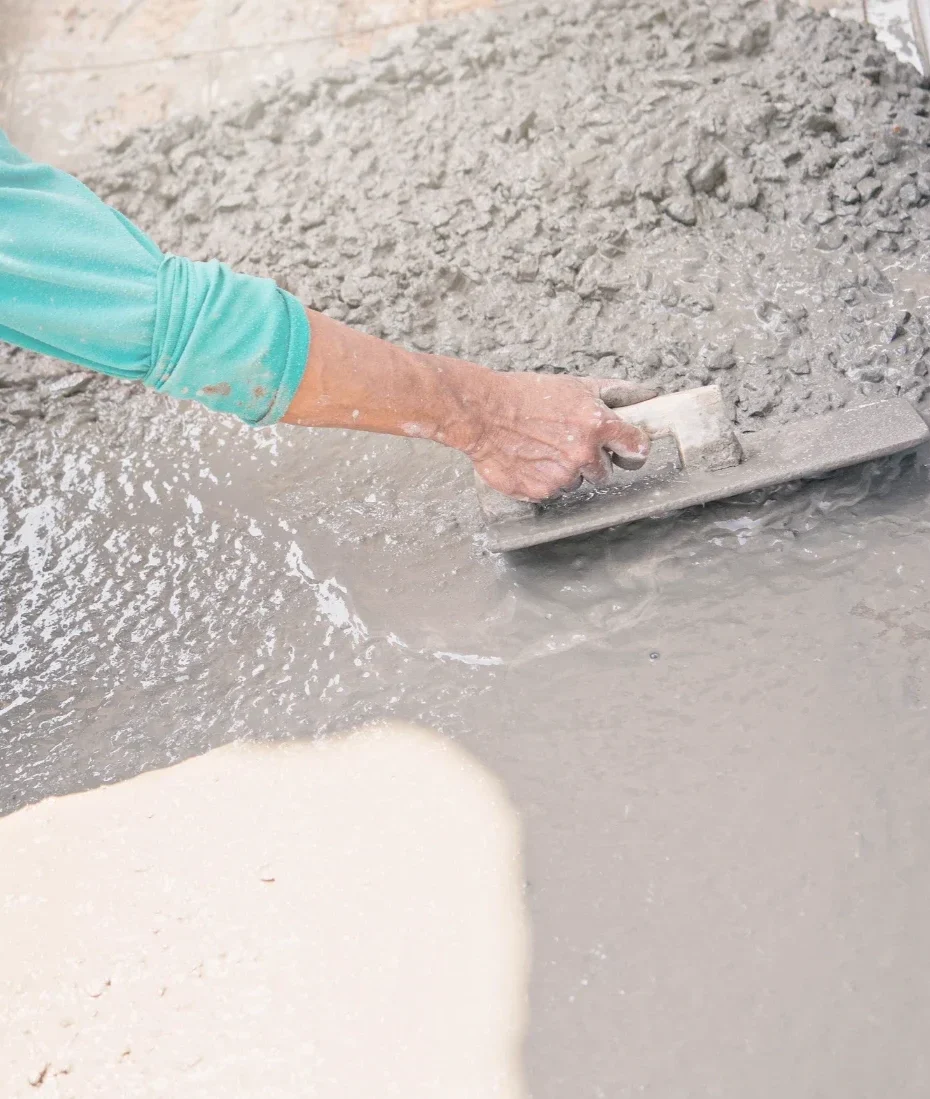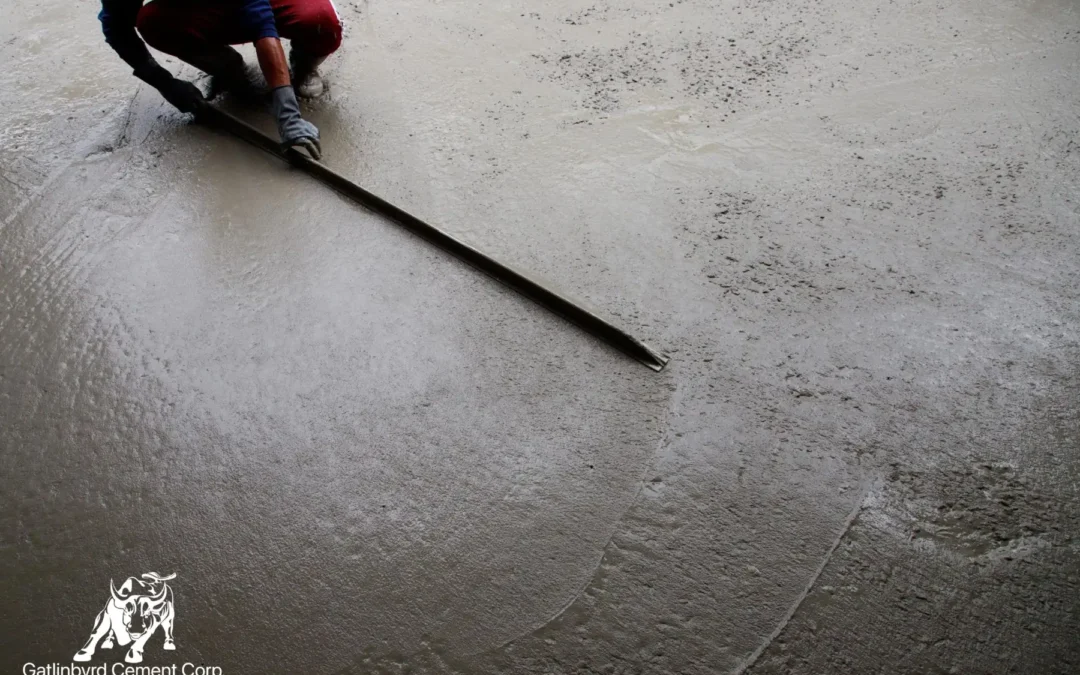Concrete is a highly useful material in construction since it is very durable and versatile. However, like any other material, concrete shows signs of wear and tear over time. In such a situation, property owners need to decide between concrete resurfacing and concrete replacement. Deciding between the two can be difficult, but worry not! In this article, you will understand the differences and learn what to look for. This will help you inspect your concrete and make an informed decision.
Understanding Concrete Resurfacing
Concrete resurfacing is a concrete repair process that involves covering an existing concrete surface with a thin layer of a special coating. This process can renew the worn-out concrete surface and give it a fresh look. In this scenario, there is no need for time-consuming and expensive demolition work, so the cost of concrete resurfacing is significantly less than concrete replacement. This can quickly cover minor imperfections of a concrete structure and improve its appearance a lot. Very typical and common uses of concrete resurfacing are for concrete driveways, patios, or sidewalks. In case these have minor cracks, discoloration, or superficial damage, a concrete contractor can quickly and easily resurface them for an easily affordable cost.
Understanding Concrete Replacement
Concrete replacement, on the other hand, is a process that involves removing the existing concrete structure and pouring new concrete. This process is usually necessary when the concrete has taken such damage that threatens its structural soundness and integrity. Concrete replacement is a very thorough repair process that ensures that any underlying issues are fully resolved. Although it is more expensive and time-consuming, concrete replacement offers a fresh start and ensures an enhancement of the structure’s longevity and durability. Common scenarios that require a concrete replacement are concrete structures with deep, wide cracks, extensive structural damage, or very uneven surfaces.
Signs That Indicate You Need Concrete Resurfacing
Concrete resurfacing is an ideal option if the concrete surfaces show minor signs of wear. Here are a few signs that resurfacing may be sufficient:
Minor Cracks
Small cracks on the surface, from hairline cracks to any cracks less than ¼ inch wide, could be caused by the concrete’s natural shrinkage and settling. These cracks can be covered with a resurfacing material.
Surface Discoloration
One other issue that affects the appearance of the concrete while not calling for a replacement is fading or staining. Concrete resurfacing can address this issue quite sufficiently.
Superficial Damage
Minor surface spalling or chipping is another issue that can be resolved with a resurfacing layer. This damage could be general damage from foot traffic or weather conditions, but you must use resurfacing only if the damage has not compromised the structure’s stability.

Signs That Indicate You Need Concrete Replacement
Concrete replacement is a necessity if the damage to your concrete is too severe for resurfacing to be effective. Here are a few signs that concrete replacement may be a better option:

Deep, Wide Cracks
Cracks that spread widely over the concrete surface or deeply penetrate the concrete are signs of serious structural issues.
Extensive Damage
Any signs indicating that the structural integrity of the concrete is compromised, whether it be serious crumbling or extensive damage throughout, call for concrete replacement.
Uneven Slabs or Sinking
Concrete that has settled unevenly or has serious sinking issues usually needs to be replaced to correct the foundational problems.
Making the Right Decision
When deciding between resurfacing and replacement, it is recommended to take the following into account:
Cost Difference
Cost can impact your decision a lot. Resurfacing and replacement are two very different processes that require quite different amounts of both labor and material. This makes resurfacing typically cost one-third to one-half of the price of replacement. However, you should also consider the long-term cost implications. While concrete resurfacing resolves certain issues and extends the life of the concrete, it does not renew the concrete’s structure and any unaddressed underlying issues may necessitate a concrete replacement later. Replacement, however, although more costly in the first place, can guarantee a longer lifespan for concrete and might be more cost-effective in the long run if the concrete is severely damaged and in need of continuous repair.
Environmental Impact
Concrete replacement, although necessary in some cases, produces a lot of waste and uses a lot of new material. It also has a larger carbon footprint due to all of the energy required for demolition and waste disposal. On the other hand, concrete resurfacing is a more eco-friendly option. When deciding between the two, it is advisable to be environmentally responsible.
Professional Opinion
While you could have an idea of what you need according to what you have learned in this article, getting a professional opinion is also recommended. You typically need to ask a concrete company to do the resurfacing or replacement for you, so having your concrete inspected by your concrete contractor is another way to make the right decision.
Residential and Commercial Concrete Contractor in Ypsilanti, MI
If you live in Ypsilanti, MI, and you need professional help with your concrete, Gatlinbyrd Cement is here to help. As a trusted concrete contractor, we offer a range of concrete services in Ypsilanti, MI, and we go above and beyond to make sure your concrete is repaired, replaced, or built properly. Whether you need a professional inspection to make the best decision, concrete resurfacing, or concrete replacement, you can trust our team of experts with it.
Contact us now and have your concrete repaired or replaced by experienced professionals.
Frequently Asked Questions
Can I resurface my concrete driveway myself?
DIY concrete resurfacing is possible for small areas with shallow damage. However, proper preparation and application are crucial for a successful outcome. Consider the complexity of the project and your DIY skills before attempting it yourself.
How long will a resurfaced concrete surface last?
The lifespan of a resurfaced surface depends on several factors, including the quality of the work, the type of material used, and the amount of traffic it undergoes. With proper maintenance, a resurfaced driveway can last 10-15 years.
What are the different types of concrete resurfacing materials?
Common resurfacing materials include epoxy overlays, polymer-modified concrete overlays, and cementitious overlays. Each offers certain benefits and is suitable for different applications. Consulting a professional will help you choose the right material for your needs.
Can I change the color or texture of my concrete during resurfacing?
Yes, there are options for adding decorative finishes and color pigments during the resurfacing process. This allows you to enhance the aesthetics of your concrete surface alongside the repair.
How long does it take to resurface concrete?
Resurfacing projects are typically faster than complete replacements. The curing time for the overlay material is the main factor. Depending on the size and complexity of the project, resurfacing can be completed in 1-3 days.
How do I maintain my resurfaced concrete?
Regular cleaning, sealing every few years, and avoiding harsh chemicals are key to maintaining a resurfaced surface. Sealants protect the surface from water damage and staining, extending its lifespan.

